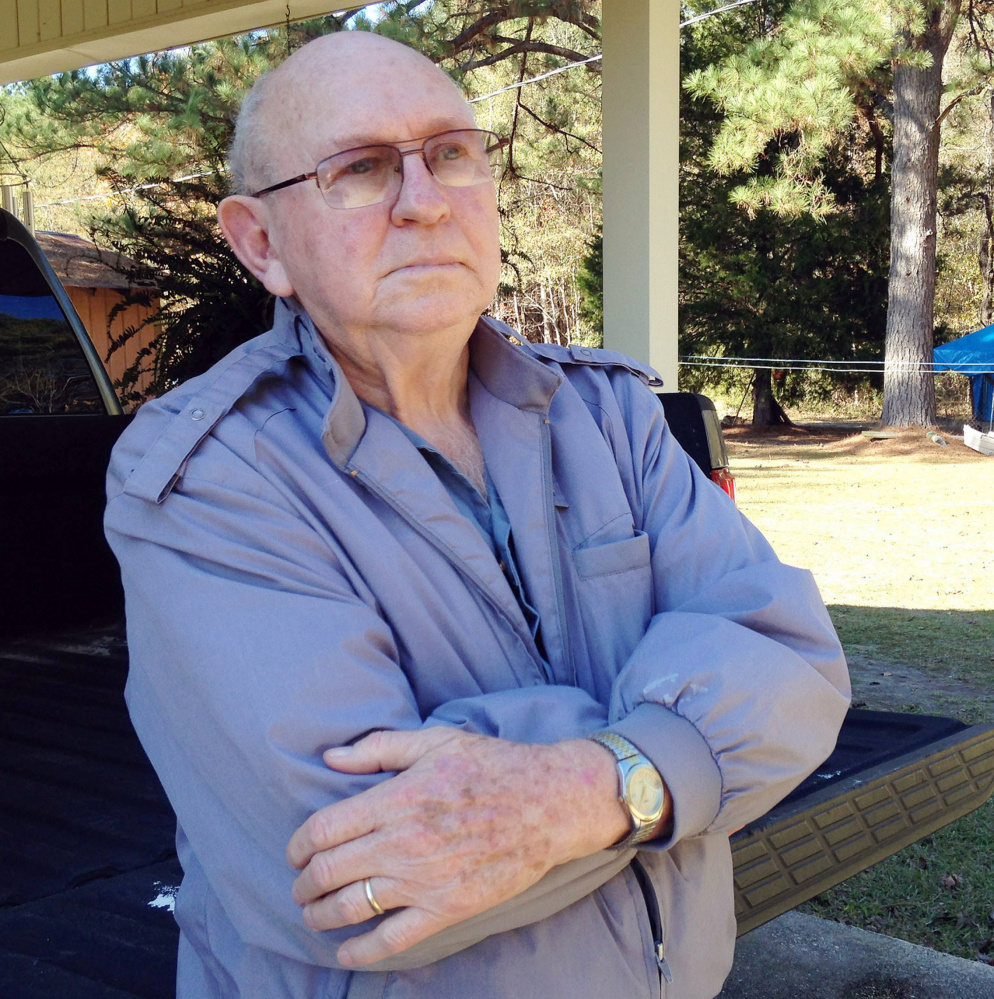NEEDHAM, Ala. — A single gunshot has haunted Quinnie Donald for more than five decades.
The former Alabama sheriff’s deputy shot and killed a black man in 1964 outside a house known for selling illegal booze. If the same events played out today, the death of Frank Andrews might have become a flashpoint in the national debate about police use of force and minority rights.
Instead, the white deputy spent 50-plus years second-guessing his actions and waiting to find out whether he would be prosecuted in the shooting, which forced the Andrews family to endure years of pain and left Donald with the sense that something was always hanging over his head, about to drop.
That gnawing uncertainty ended only weeks ago, when Donald, 78, learned that the FBI had closed its last investigation into Andrews’ death with a determination that no charges were warranted.
He now says the shooting was an accident, but FBI reports show that’s not what he said at the time, and it’s still not clear exactly what happened that night in Lisman, just a few miles from the Mississippi state line in rural Choctaw County.
“I’m proud that they closed it, but I don’t like bringing it up,” Donald said quietly during an interview at his home this month. “I regret that it happened.”
Andrews’ family could not be located for comment on the government’s decision. Several years ago, two of Andrews’ relatives told The Associated Press they never really knew how he died.
FBI reports show Donald and another deputy stopped at Smith’s Cafe on Nov. 28, 1964, to investigate a possible disturbance or illegal alcohol. The county was dry at the time.
In the interview, Donald said he remembers the headlights of the patrol car illuminating Andrews on the side of the road as they arrived.
“He was either taking a pint of whiskey or selling a pint of whiskey. We never found out which,” Donald said.
The officers split up, and Donald said he saw Andrews put his hand in his a pocket as if trying to pull a knife on the other officer.
Donald, whose regular service revolver was broken, said he was carrying an unfamiliar pistol that took only a slight touch to fire.
“I pulled out the gun and didn’t know it had such a light trigger,” he said. “It went off when it wasn’t supposed to.”
Andrews, 27, was shot in the lower back. Donald and his partner drove him to a hospital, but the man was dead within hours.
Today, Donald knows one thing: He will never again pull the trigger of a handgun.
“When I left the sheriff’s office, I gave my gun away,” he said. “To this day, I don’t have a pistol. I don’t want one.”
Send questions/comments to the editors.



Success. Please wait for the page to reload. If the page does not reload within 5 seconds, please refresh the page.
Enter your email and password to access comments.
Hi, to comment on stories you must . This profile is in addition to your subscription and website login.
Already have a commenting profile? .
Invalid username/password.
Please check your email to confirm and complete your registration.
Only subscribers are eligible to post comments. Please subscribe or login first for digital access. Here’s why.
Use the form below to reset your password. When you've submitted your account email, we will send an email with a reset code.